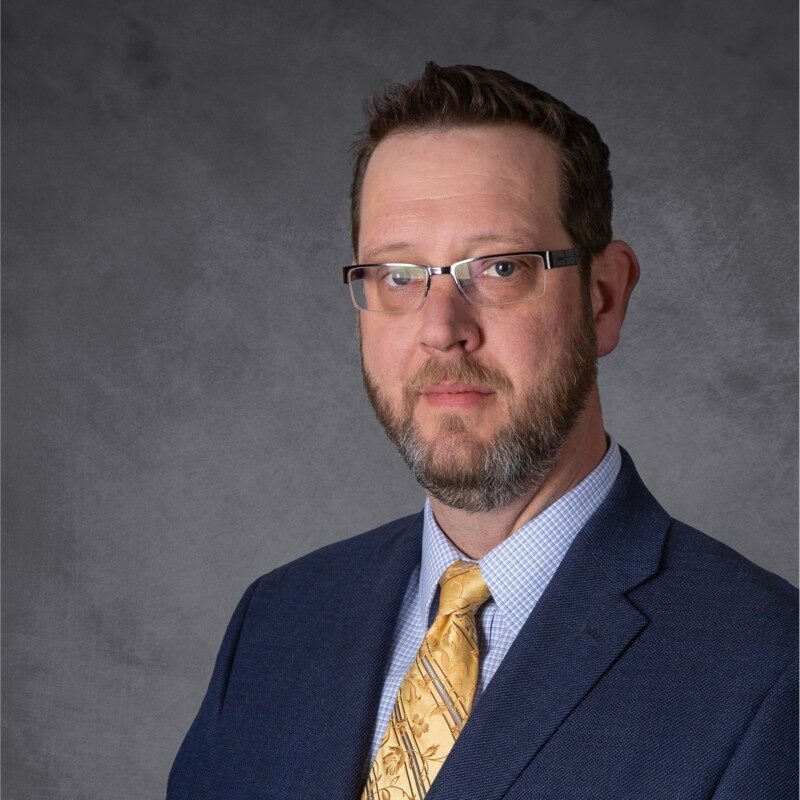
The finalists for WashingtonExec’s Pinnacle Awards were announced Oct. 13, and we’ll be highlighting some of them until the event takes place virtually Dec. 8.
Next is Cybersecurity Industry Executive of the Year (Private Company) finalist Marlin McFate, who’s public sector chief technology officer at Riverbed Technology. Here, he talks key achievements, learning from failures, proud career moments and more.
What key achievements did you have in 2020/2021?
I am proud of how my team and I supported our customers and partners during 2020 and 2021. We worked tirelessly to help them transition safely and securely to a work-from-anywhere environment and have the same level of performance from their networks and applications at home as they had in their offices.
We helped alleviate congestion and latency on their networks and increase their visibility as the network expanded and grew to support a work-from-anywhere workforce. Increasing visibility not only supports a stronger, more able workforce but also helps combat bad actors.
I spearheaded an initiative to provide visibility to any organization potentially affected by the SolarWinds hack. My teams and I were able to produce a list of clear indicators that would signal if a network had been penetrated, look within historical data to assess where the hack had infiltrated and restore visibility across networks.
What has made you successful in your current role?
I would credit my success largely to my time in the U.S. Army. I joined the Army relatively late, at the age of 23. At the time, I was at an art school for college and was struggling to find success. The Army was a major turning point, not only in my career but also in my life.
In the Army, I gained the discipline and self-confidence I needed to become the person I am today, and that experience laid the foundation for the path I would take afterward.
With my new confidence, following my service, I jumped into a software designer role, despite having no background in that field. Many people think that designing software and art are opposites, but I found that to be untrue.
With my unique art background, I was able to easily bridge the gap by combining the technical disciplines I learned through my career and the creativity I always had.
What’s one key thing you learned from a failure you had?
First, that failure as a word is incorrect. Failure is just a poorly constructed hypothesis that was tested to be incorrect. The most important thing I have learned from failure is that you should view the term not as “it didn’t work” but using the lens of “it didn’t work that way.”
There are multiple ways to approach or solve a problem. I have learned to view failure not as a defeat, but as redirection in my approach towards goals. It is a mere challenge in a journey that you can always complete with strategy and patience.
What’s the biggest professional risk you’ve ever taken?
The biggest risk I have ever taken is pursuing my dream of becoming a software engineer. At the time, I was in the National Guard and had just returned from deployment, and I was offered a job to become a software engineer. I had no previous experience or degree in that field, but it was something I was passionate about.
In order to take the job, I needed to leave a very well-paying job as a general manager at a major retailer and take a pay cut with three young children to provide for. I had no idea if this career change would work out, but I needed to take a chance on myself and utilize the skills I had to make the most of the opportunity. I am grateful I did.
Looking back at your career, what are you most proud of?
I am most proud of my service in the Army. Everyone joins the military for different reasons — I joined as a challenge to myself, and I was the first person in my family to be in the military. Some of the people I met during my service are like brothers and sisters to me.
It’s not an easy job, but it’s incredible to be a part of it and to work towards something bigger than yourself. It also taught me a lot about patriotism and helped me discover the love I have for our country.
My time in the Army also created the framework for how I conduct myself in my current role as CTO. At Riverbed | Aternity, we are always challenging ourselves and pushing towards innovation; past what is expected of us.
What’s your best career advice?
Early on in my career, I was advised to find someone within my organization that inspires me; someone that I wanted to be when I “grew up.” I now pass that advice on to others. Seek out strong mentors; people who exhibit traits that you would like to have and inspire you.
One of my first mentors was an approachable man that had messy hair and had a relaxed appearance, yet when he spoke, he had a presence and was able to convey information so precisely that had military officials in awe. Being able to capture an audience like he did was something I wanted so I mapped out a path towards arriving where he was.
I also emphasize that you can’t get too grounded in the tactical way of planning things — consider creative alternatives.
Finally, be humble, listen with intent and look to the future and dream.

